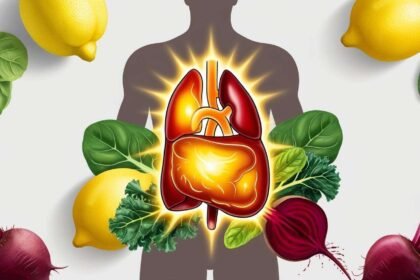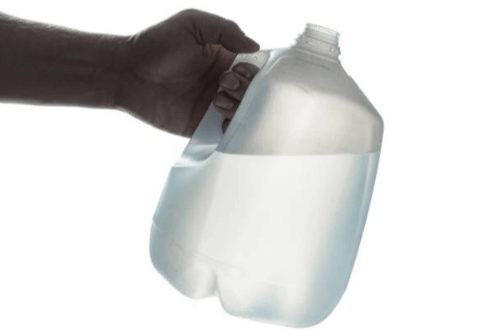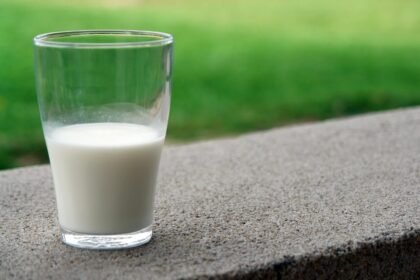Seeing yellow poop in the toilet bowl can be alarming, but it’s rarely a cause for concern. In fact, pale or yellow stool is very common and usually results from dietary changes or temporary digestive issues.
This article will explore the most common causes of yellow stool, signs that point to an underlying condition, and when you should consult a doctor about yellow poop.
What Causes Yellow Stool?
There are several potential causes of yellow poop:
1. Dietary Changes
One of the most common reasons for yellow stool is a change in diet. Food dyes, colored supplements, and certain high-pigment foods can cause pale or yellow poop as they pass through the digestive tract. Common culprits include:
- Carrots, sweet potatoes, turmeric, and other yellow/orange foods
- Iron or multivitamin supplements
- Food coloring agents like tartrazine
- Excessive amounts of fat, which can cause steatorrhea (pale, smelly stool with excess fat)
If you notice yellow poop after increasing consumption of any of these foods or supplements, that is likely the cause. The stool should return to a normal brown color once your diet stabilizes.
2. Digestive Upset
Short-term digestive disturbances can also lead to yellow stool. Diarrhea, celiac disease, and conditions that affect nutrient absorption like Crohn’s disease can cause pale or yellow poop. Infections from bacteria, viruses, or parasites can also irritate the digestive tract and lead to yellow diarrhea.
Once the infection or digestive upset resolves, bowel movements usually return to normal. See a doctor if you have ongoing diarrhea, especially if it is accompanied by bleeding, fever, dehydration, or severe pain.
3. Liver Issues
Since bile plays a key role in stool color, disorders of the gallbladder, liver, or pancreas can also cause yellow stool. Gallstones, chronic liver disease, and blocked bile ducts reduce the amount of bile released into the digestive tract. Without bile, stool loses its typical brown color.
In addition to yellow stool, symptoms of liver disorders can include itching, dark urine, and jaundice (yellowing skin and eyes). Seek prompt medical care if you suspect a problem with one of these organs.
4. Medications
Certain medications like Pepto Bismol, iron supplements, and antibiotics can turn poop yellow or clay-colored. The effects are temporary and stool color should return to normal after finishing the course of medication.
If you notice pale stool after starting a new med, talk to your doctor. Yellow poop with medication use is rarely a major concern, but your doctor may consider adjusting the type or dosage.
5. Newborns
Newborn babies typically have yellow or mustard-colored stool for the first few days after birth. This is due to the relative lack of bile flow and different intestinal environment. Yellow newborn poop is normal and will transition to brown or green over the first week of life.
As long as the baby is producing frequent wet diapers and seems content after feeding, there is no need for concern about yellow stool. Mention it at your pediatrician appointment just so they are aware.
When is Yellow Poop a Concern?
In most cases, yellow stool is not a cause for concern, especially if it resolves after a day or two. However, there are some instances where yellow poop can be a sign of an underlying problem. Contact your doctor if you experience:
- Prolonged diarrhea lasting more than 2 days
- Very pale poop that looks grey or clay-colored
- Yellow stool accompanied by itching, weight loss, or dark urine
- Stomach pain, cramping, or bleeding along with yellow diarrhea
- Persistent yellow stool in infants and young children
- Failure to pass stool for more than 3 days in infants under 1 month old
Seeking prompt care is especially important with yellow poop in young babies. It could reflect jaundice, dehydration, or a bowel obstruction that needs urgent treatment.
Related: Dark Green Poop: What It Means and When to See a Doctor
Diagnosing the Cause of Yellow Stool
To determine the underlying cause of yellow stool, the doctor will begin with a detailed history. Expect questions about:
- Diet: Any recent changes in foods, drinks, supplements?
- Medications: Both prescription and over the counter.
- Travel history: Recent trips out of the country.
- Symptoms: Color change, consistency, associated issues like pain.
- Baby’s health: Delivery details, wet diapers, feeding changes.
The physical exam will focus on the abdomen, feeling for tenderness, distension, or enlarged organs. The doctor will examine the skin and eyes for signs of jaundice. Infants will have a full exam looking for dehydration and abdominal issues.
From there, diagnostic tests can help identify potential problems:
- Stool culture: Checks for blood, parasites, bacteria, fat content, etc.
- Blood work: Evaluates liver enzymes, bilirubin levels, and electrolyte balances.
- Abdominal CT or ultrasound: Views the gallbladder, bile ducts, pancreas, and liver.
- Endoscopy: Allows direct visualization of the digestive tract.
- Liver biopsy: Takes a small sample to diagnose liver disorders.
Most cases of yellow stool require minimal testing. But these diagnostic tools are important for finding or ruling out underlying conditions, especially in high-risk patients and those with concerning symptoms.
Treatments for Yellow Stool
Treatment depends on the underlying cause of yellow stool:
- Dietary changes: Avoid fat, high-pigment foods, iron supplements.
- Medication adjustments: Switch meds if needed.
- Rehydration: Fluids/electrolytes for diarrhea.
- Infection treatment: Antibiotics, anti-parasitics, probiotics.
- Surgery: For gallstones, obstructed bile ducts, etc.
- Medications: Laxatives, stool softeners, antidiarrheals.
- Liver disease management: Diet, meds, lifestyle changes.
Most cases require little intervention beyond diet modifications and hydration. Seek medical treatment for any persistent yellow stool or concerning symptoms.
When to Seek Emergency Care
In rare cases, yellow stool can represent a medical emergency. Seek immediate care if you experience:
- Blood or pus in the stool
- Severe abdominal pain, especially if accompanied by vomiting
- Fever over 101 F
- Signs of dehydration like dizziness, rapid heart rate, and confusion
- Yellow skin/eyes (jaundice) combined with yellow poop
Infants require emergency care for yellow stool along with:
- Excessive fussiness or lethargy
- Failure to produce tears when crying
- No wet diapers for more than 6 hours
- Repeated projectile vomiting
Rapid treatment is crucial for babies with yellow poop that suggests dehydration or bowel obstruction.
Preventing Yellow Stool
You can take some simple steps to avoid yellow poop:
- Drink plenty of fluids to stay hydrated
- Gradually increase high-pigment foods
- Check labels for food dyes like tartrazine
- Take iron supplements with food
- Finish entire course of antibiotics
- Wash hands before eating to prevent infections
- Get recommended vaccines before travel
- Avoid unnecessary antibiotics and laxative use
While harmless in most cases, preventing yellow stool can minimize disruptive digestive symptoms and ensure you stay properly hydrated and absorbent.
When to Worry About Yellow Poop
Yellow stool is generally not a cause for concern. In fact, it is very common and usually tied to short-term dietary factors or digestive upsets.
Pay close attention to yellow poop that persists more than 2 days, appears grey/pale, or occurs with concerning symptoms.
Babies with yellow stool always warrant prompt medical attention to rule out dangerous dehydration or obstruction.
With treatment for any underlying condition, yellow poop will typically resolve and bowel movements will return to their normal color.
Awareness of the common causes and when to seek care will help you respond appropriately if you happen to look in the bowl and see your poop has turned yellow.
- Stool color changes: https://www.medicalnewstoday.com/articles/319637
- Yellow stool in newborns: https://www.childrenscolorado.org/conditions-and-advice/parenting/newborn-care/what-newborn-poop-tells-you/
- Digestive diseases that cause yellow stool: https://www.uofmhealth.org/health-library/aa166321
- Medications that can cause yellow stool: https://www.medicalnewstoday.com/articles/323101
- Yellow stool emergencies: https://www.unitypoint.org/article.aspx?id=db428f77-6e61-497b-91ce-1317a3396dd9
- Preventing yellow stool: https://www.medicalnewstoday.com/articles/327190












